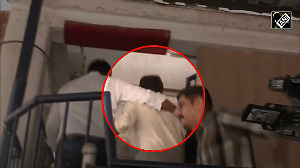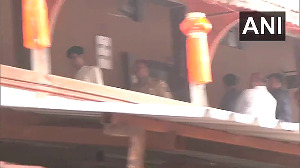While basic policies focus on structural damage, comprehensive ones extend to household contents like furniture, electronics, clothing, and other personal belongings.

The recent wildfires in America's Los Angeles area underscores the growing need for fire insurance, particularly in India, as climate change and urbanisation amplify such risks.
Disasters like these can devastate homeowners whose life savings are tied to property, but who often lack adequate insurance.
"Climate change has led to an increase in the frequency, severity, and scale of natural disasters worldwide. The wildfires in Los Angeles are a reminder of this growing threat and the need to protect one's property and assets through insurance," says Indraneel Chatterjee, co-founder, RenewBuy.
What does fire insurance cover?
Fire insurance, also called as fire and allied perils policy (and often part of a home insurance policy), covers a range of risks.
"These include fire, explosion, riots, floods, storms, earthquakes, and malicious damage," says Amitabh Dewan, head, large risks, Policybazaar for Business.
Chatterjee adds that damages caused by short-circuits, aircraft, cyclones, tempests, bushfires, are also covered.
These policies cover costs of repair, reconstruction, or replacement of insured properties.
While basic policies focus on structural damage, comprehensive ones extend to household contents like furniture, electronics, clothing, and other personal belongings.
"Coverage for furniture, appliances, and valuables, including their sum insured, must be separately mentioned in the policy," says Subramanyam Brahmajosyula, chief product and marketing officer, SBI General Insurance.
Chatterjee adds high-value items such as jewellery, artwork, and antiques may need separate coverage or endorsements.
Irfan Shirwani, managing director, placement and claims, Lockton India, informs that coverage for these policies excludes the cost of land.
Key exclusions
Those planning to buy this policy should be aware of its exclusions.
"Standard policies do not cover fire caused by war, terrorism, or wilful misconduct. Precious items like coins, art, or contents over 10 years old are also excluded," says Abhishek Kumar, a Sebi registered investment adviser and founder, SahajMoney.com.
Exclusions also include loss caused by wear and tear, depreciation, nuclear risks, and illegal use of the property.
"Some policies may exclude claims if the property was unoccupied for a prolonged period or lacked adequate protection," says Brahmajosyula.
Determining sum insured
The sum insured is typically based on the covered area and the construction rate. Experts recommend opting for reinstatement value rather than market value.
"Although premiums are higher for reinstatement value policies, they ensure adequate funds to repair or rebuild a property to its original state," says Kumar.
In contrast, market value policies account for depreciation and may not pay enough to restore the property.
Premium cost
Fire insurance premiums range between 0.025 and 0.05 per cent of the asset value per annum, according to Chatterjee.
He adds that factors like building age, size, fire protection measures, and location influence premiums.
"Additional perils can be covered by paying extra premium. If some perils are deleted, discount is offered. Discounts are also offered on long-term policies and to customers with a good claims history," says Shirwani.
Mistakes to avoid
Buyers should declare the correct value of their property, and accurately specify the covered area and construction rate, suggests Dewan.
"In case of total loss, an undervalued policy will fail to provide adequate coverage," says Kumar.
Chatterjee suggests "opting for insurers with strong financials and good claims history.
If a misfortune occurs, inform the insurer so that a surveyor can be appointed. Provide a detailed account of damages and necessary documents," says Shirwani.
Certified true copy of the policy along with schedule and endorsements/clauses
Claim form
Newspaper reports on the incident, if any
Photographs of the site
Past claims experience
Fire claim may require additional documents: fire brigade report, FIR, forensic laboratory report on samples collected at the affected site, etc
Source: Lockton India
Disclaimer: This article is meant for information purposes only. This article and information do not constitute a distribution, an endorsement, an investment advice, an offer to buy or sell or the solicitation of an offer to buy or sell any securities/schemes or any other financial products/investment products mentioned in this article to influence the opinion or behaviour of the investors/recipients.
Any use of the information/any investment and investment related decisions of the investors/recipients are at their sole discretion and risk. Any advice herein is made on a general basis and does not take into account the specific investment objectives of the specific person or group of persons. Opinions expressed herein are subject to change without notice.
Feature Presentation: Aslam Hunani/Rediff.com












 © 2025
© 2025